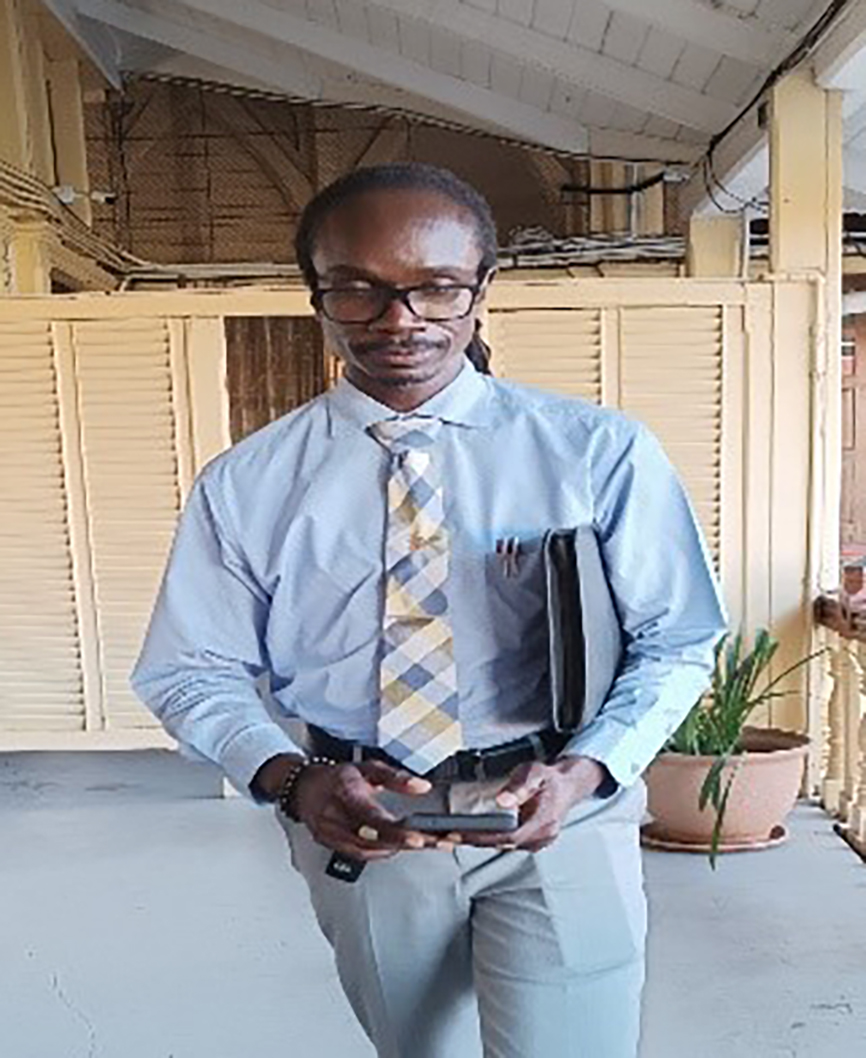As the Guyana Teachers’ Union (GTU) and the Ministry of Education (MoE) met at the first hearing yesterday at the High Court of a case stemming from the teachers’ strike, Chief Education Officer (CEO) Saddam Hussain was pressed on his understanding of the term “salary increase” and to provide evidence that it was discussed during previous meetings.
GTU attorney Darren Wade led the cross-examination of Hussain, challenging the claims made in the MoE’s response affidavit that salary increases had been on the agenda. In the witness box, the CEO was asked, by Wade, whether or not the salary increases were made for all public servants and not just teachers, to which Hussain responded that he is not au fait with the goings-on at the Ministry of Finance which is responsible for salaries.
At the beginning of the hearing, which was overseen by Justice Sandil Kissoon, the focus centred on the production of documents, by the MoE, as ordered by the Court on Monday. Attorney General (AG) Anil Nandlall SC assured the court that the documents had been provided within the stipulated timeframe, but Wade raised concerns about the nature of the documents received, suggesting they were internal rather than minutes or agendas as requested.
To streamline the process, Justice Kissoon proposed compiling all minutes into a single bundle for examination by both parties, with a requirement for all parties to sign a statement confirming the contents. Wade agreed to this proposal, emphasizing the importance of transparency in the case. Guyana Public Service Union (GPSU)’s legal representative Roysdale Forde was also in agreement with the proposal.
However, Nandlall objected to this, while accusing the court of “shifting the goalpost” in favour of the applicant as well as shifting the burden of producing evidence to the ministry when it was the union that was making a claim against them.
After it was found that the GTU was not in possession of the minutes despite its president claiming to have same on Monday, Justice Kissoon decided against his initial proposal and gave the go-ahead for the cross-examination. The first witness on the stand was GTU’s second Vice President, Julian Cambridge, who faced cross-examination on various financial matters related to teachers’ welfare.
Discrepancies emerged between the GTU’s proposals and the actions taken by the MoE, particularly regarding the debunching of teachers and travel allowances. Since this first cross-examination, which was a conducted by state counsel Darshan Ramdhani KC, was a lengthy one, the court took a break for lunch and reconvened at 1:30 pm.
When the court reconvened, discussions continued on the morning’s proceedings, with the issue of GOAL scholarships for teachers in the education system also brought to light. At the end of it all, both parties acknowledged the MoE’s efforts to improve rewards for educators, setting the stage for further cross-examinations and deliberations in the case. This first cross-examination also saw Cambridge admitting that previous meetings did entail financial discussions, though under such topics as duty-free concessions for teachers and school cash grants.
With tensions running high in the aftermath of a four-week-long teachers’ strike and conflicting versions of talks, the court is set to reconvene today at 1:00 pm when the cross-examination of Hussain will continue.
The case stemmed from the government’s declaration that the GTU strike was illegal and its subsequent decision that strikers would not be paid. The government also decided to cease the withdrawal of union dues on behalf of the GTU and this spurred the union to go to court to challenge these measures and to insist on collective bargaining.
Justice Kissoon’s first order was the preservation of the status quo pending the substantive hearing meaning that no deductions could be made from teachers’ salaries. A subsequent statement from Hussain that deductions would be still ne made saw him being summoned by Justice Kissoon for contempt of court. Hussain apologized and Justice Kissoon later floated mediation between the two sides and eventually ordered it despite Nandlall’s objections. Two rounds of talks were held with the mediators and this resulted in the ending of the strike and a decision for bilateral talks between the ministry and the union. Two meetings were held until talks broke down on March 12 resulting in a return to the court of Justice Kissoon.





